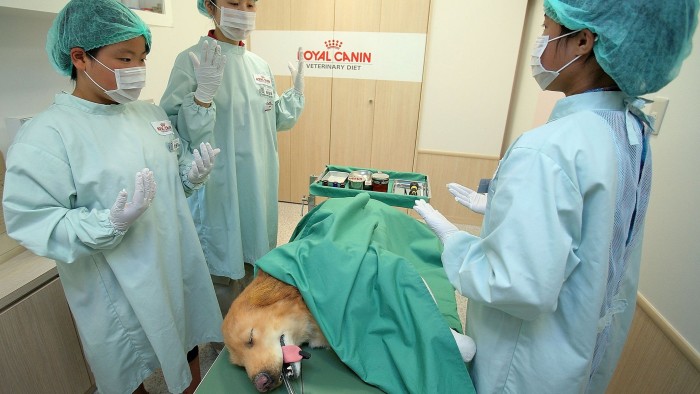Business school: career aspiration gap and French leadership

Simply sign up to the Business education myFT Digest -- delivered directly to your inbox.
Welcome to the FT Business school newsletter, a weekly serving of management wisdom, reading recommendations and business-related challenges. FT subscribers can sign up here to receive the newsletter by email every Monday. If you have any feedback about FT Business school, please email bschool@ft.com.
Andrew Hill's challenge
The FT's management editor sets a weekly test of your business, strategy and management skills.
Children are often urged to aim high, but if they don't know what they should aim at, it is easy for them to miss the real target. That is the lesson of some interesting data harvested from visitors to the London outlet of KidZania, the chain of mini-city theme parks where children can try out realistic jobs, from firefighter to pilot. The data seem to show that gender and class influence children's choices. For instance, children from deprived areas pick familiar activities, such as hair stylist, rather than more aspirational roles such as radio broadcaster.
One suggestion is that companies need to intervene earlier to widen young people's horizons. For this week's challenge, send your concise ideas (or, if you prefer, your experience) of ways businesses could help: work experience, school visits or something more innovative? Send your thoughts to bschool@ft.com .
From responses to last week's challenge about how to nudge staff to be more cyber-secure, I picked Evan Davidson's recommendation to "take a proactive approach and reward them, tangibly, for detecting and suggesting improvements to improperly designed cyber security controls".
This week's further reading is this sensible opinion piece from Susan Cain in the New York Times about universities' obsession with "leadership". They are teaching students "to be a leader for the sake of being in charge", she writes, when any well-functioning student body or polity also "needs followers …needs team players [and] needs those who go their own way".
Professor's picks
Every week a business school professor or academic recommends useful FT articles.
Kiron Ravindran, professor of information systems at IE Business School, selects:
Ride-hailing app Grab to hire 800 developers On one hand, we see the rapid adoption of ride-hailing services like Uber and Grab. On the other hand, autonomous cars are seeing heightened interest from not only traditional automotive companies like Ford and Mercedes-Benz, but also unexpected players like Google and Intel.
We are clearly on the cusp of science fiction in urban transportation. Online platforms dispatching autonomous vehicles for point-to-point mobility seems a reality in the near future. Paying attention to where investment is being allocated in the auto sector will give us an insight into how the industry will develop in the next five to 10 years.
Ford to invest $1bn in new driverless car unit Argo For Ford to invest such a huge amount in one big project indicates how strategic an investment this is. But is this even close to what it will take for traditional automotive companies to stay relevant?
It would be interesting to see if the car of the future turns into an entertainment room — as Volvo revealed it was planning to develop self-driving vehicles where drivers can watch films — or perhaps a mobile office designed by Cisco. The auto industry is currently on the brink of disruption. My students can learn how new entrants disrupt and how innovative incumbents survive.
Ask the academics
Got a question for leading business school experts? Send it to bschool@ft.com and we will publish the best replies in future newsletters.
Jonathan Moules' business school news
Attention will be focused on France this month with the culmination of the country’s presidential election campaign on April 23. While much analysis has been concentrated on the political candidates, including in the pages of the FT, my colleague Harriet Agnew looks at the French way of doing business. She interviewed a group of business school academics looking at the changing nature of corporate leadership in France.
I have interviewed a graduate of the Wharton School, Vernon Hill, about his British start-up Metro Bank, which has been biting at the heels of the five large high street lenders in the UK over the past seven years. Mr Hill is a friend and occasional golfing partner of Donald Trump. The US president also happens to be a fellow Wharton alumnus, but the two never met on campus, according to Mr Hill, because they were both already involved in business.
Further reading
Motivating your team to complete agreed tasks can be tricky. If you are looking for tips, then read How to Get Your Team to Follow Through After a Meeting published in Harvard Business Review.
Test your knowledge
How good is your grasp of the news? Test your reading of last week's top stories with the FirstFT quiz.
Compiled by Wai Kwen Chan
Comments